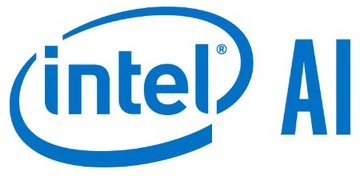Call for Papers
Aim and scope
Submissions are solicited for the NeurIPS 2019 Joint Workshop on AI for Social Good for unpublished completed work and current work within the social impact space. Works should focus on social problems for which artificial intelligence offers meaningful solutions (i.e., "Producing Good Outcomes" track), case studies in ethical alignment of AI (i.e., "From Malicious Use to Responsible AI" track), works in public policy that maximizes the social benefits of AI systems while minimizing the negative consequences (i.e., "Public Policy" track), or some combination of these topics (can be submitted to the most relevant track).
Accepted papers will present their work as posters, and the top submitted works will be invited for oral presentation.
Track 1, Producing Good Outcomes
Inspired by the United Nations Sustainable Development Goals (SDGs) for a more equitable, prosperous, and sustainable world, we consider subject areas with opportunities for AI to meaningfully impact society by reducing human suffering and improving social welfare and justice. They include:
- Education
- Protecting democracy
- Urban planning
- Assistive technology for people with disabilities
- Health
- Agriculture
- Environmental sustainability
- Economic, social, and gender inequality
- Social welfare and justice
- Ethics, Privacy, and Security
We accept papers that focus on applying Artificial Intelligence to these areas. We encourage submissions that have interdisciplinary collaborations between the technical and social sciences. The models or approaches presented do not necessarily need to have outstanding theoretical novelty, but should demonstrate potential for a meaningful social impact. Submissions should focus on past and current work intended to produce good outcomes, showcasing actual results and demonstrating beneficial effects on society if the work is already deployed, or highlighting the potential impact if not yet deployed. When discussing impact, submissions should also aim to include specific methodology for ‘real-world’ implementation including potential end users (e.g. organisations, or individuals) and assess the necessary requirements for successful use. We require every submission to have a section discussing the limitations, the risks, and the potential unintended negative outcomes.
We also accept abstracts of recently published or submitted journal contributions to give authors the opportunity to present their work and obtain feedback from conference attendees.
Track 2, From malicious use to responsible AI
All intelligent systems, including those developed to produce "good" outcomes, have the potential to harm. Several declarations, principles, checklists, and tools have been developed through various organizations and participatory processes to provide guidance to mitigate unwanted but foreseeable bad effects of automated decision-making and to avert potential malicious use of AI systems. This workshop adopts the Montreal Declaration for a Responsible Development of Artificial Intelligence (2018) as a taxonomy of ethical requirements for intelligent systems.
This workshop invites case-driven research from the philosophy and machine learning communities to guide the ethically-aligned research, development, and deployment of intelligent systems. These case studies can be drawn from SDG -motivated solutions or from experiences of AI systems deployment in public services (especially social services, immigration and security) and in the private sector (insurance, bank, health). Additionally, machine learning researchers and ethicists are invited to submit works in machine learning engineering process implementing the values of the Montreal Declaration, as well as other frameworks for ethical and responsible development of AI.
Track 3, Public Policy
What does it mean to use AI for social good? How can public policy be used to enact, ensure, protect, and enforce the use of AI in ways that are beneficial to society? Regulation, institutional control, and normative system rules around technology have the capacity to maximize the social, economic and cultural benefits of AI technology, and minimize the potential problems caused by intelligent systems. This workshop will explore questions of when and how public policy should and can be used to control and regulate uses of machine learning. We welcome submissions that provide insights within the following approaches at the intersection of policy and machine learning:
- What is social good in relation to the use of AI and machine learning in society? How do we come up with better definitions of equity, fairness, transparency and other notions of “good” for responsible use of AI? Can we go beyond current trade-offs between utility/profit and “good”?
- Machine learning research can help provide new opportunities into enacting and enforcing policy objectives. For example, decision-making in various public institutions such as judges deciding bonds can now be investigated through a machine learning lens: the data, algorithms and models used for such decisions can now be scrutinized by policy makers, and has the potential for improved fairness and transparency.
- The widespread applications of machine learning has raised concerns by many in terms of privacy, adversarial robustness, interpretability, fairness, etc. We therefore welcome policy-focused non-technical papers that discuss novel policy frameworks and insights to machine learning use and misuse.
All Track Submission Details
Each of these tracks are tied together in the workshop Call For Papers, whose submissions are pooled among a shared set of reviewers covering the necessary competencies for these tracks. Submissions are encouraged to cover multiple areas, and when possible blend policy perspectives with technical analysis. For example, when developing a system addressing poverty, the researchers are encouraged to explore ethical and practical challenges before making a public policy recommendation on the problem set.
All submissions must be in PDF format. Submissions are limited to four content pages, including all figures and tables. Reviewing will be double blind. Camera-ready papers will be due in advance of the workshop. Submissions will be considered non-archival and can be submitted elsewhere after the conference.
Author guidelines can be found here:
Four page papers (Overleaf template)
Poster Size: 36W x 48H inches or 90 x 122 cm (Poster template)
Poster Paper: light weight paper - not laminated
Important dates
Submission Site
Submit at: https://cmt3.research.microsoft.com/NIPSJWAISG2019
Registration
Please register for NeurIPS https://nips.cc
Contact
Email: aisg2019.neurips.contact@gmail.com
FAQs
Can supplementary material be added beyond the 4-page limit and are there any restrictions on it?Yes, you may include additional supplementary material, but we ask that it be limited to a reasonable number of pages (~4 additional pages) and that it follows the same format as the paper. Papers that are over length or violate the author guidelines format will be rejected without review.
Are cross-submissions allowed?
Yes, cross-submissions are allowed, yet please clearly indicate if the submitted work has been presented somewhere else. Accepted papers will not be archived, thus submission does not preclude publications in other venues.
Can a submission to this workshop be submitted to another NeurIPS workshop in parallel?
We discourage this, as it leads to more work for reviewers across multiple workshops. Our suggestion is to select one workshop.
Do I submit to a specific track?
Yes, CMT will allow you to choose your preferred track and research areas.
Can I upload my paper/solution to arXiv?
Yes, it is encouraged.
If my submission is accepted, what will happen?
If your paper is accepted, you will be invited to present a poster at the workshop. Some of the accepted contributions will also be invited to give a talk. Accepted submissions will be shown on the workshop website, but there will be no formal published proceedings.
Camera-ready version: do the short paper and accepted problem introduction have the same requirements as in the call for proposal?
Yes, if it does not conform to original format it will not be posted online.
Camera-ready version: where should I post it?
You should update all your information in CMT. We will put online all the papers that are on CMT and conformed to our guidelines online after November 17th.
Poster: where should I post it?
You should send it to the workshop email: aisg2019.neurips.contact@gmail.com. We will put online all the posters that have been received and conformed to our guidelines online after November 17th.
My paper is accepted for an oral presentation?
Please send the name of the presenter, her/his headshot, and her/his short bio. Each talk is 3-4 minutes including questions. The size of the screen is 16:9 HDMI. We need your slides at least 24 h before the start of the workshop and preferably in PDF or Google Slides format. If we do not receive your slides in time we will give the spot to another paper on the waiting list. You are also invited to present a poster. We can also post online a short video link that describes your work (YouTube or Vimeo).
My paper is accepted for a poster presentation?
You can use the poster template of your choice. Poster Size: 36W x 48H inches or 90 x 122 cm. Paper should be light weight paper - not laminated. Your paper can be in landscape or portrait mode as long as it fits in this size. We can also post the PDF of your poster and a short online video link that describes your work (YouTube or Vimeo).
I can not attend, what can I do?
We strongly encourage at least one author per submission to attend the workshop to present in person. However, submissions with no attending authors will still be considered, if the absence is justified.
My paper got accepted and I cannot come. Can someone print my poster and display it at the conference?
You can send us your poster in PDF format and we will post it online. We can also post a short video link that describes your work (YouTube or Vimeo).
There is a mistake in the display of the title, author list, PDF, video, ... of my submission on the website what should I do?
Please send an email to the workshop email: aisg2019.neurips.contact@gmail.com
I might have a VISA issue?
If you have submitted a paper (whether or not the deadline has passed) and you anticipate your US travel visa to take a long time, we encourage you to please contact us as soon as possible. We'll do our best to find a solution, by for example fast-tracking the review of your work.




